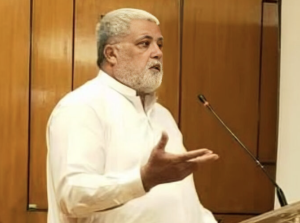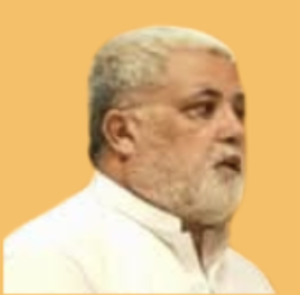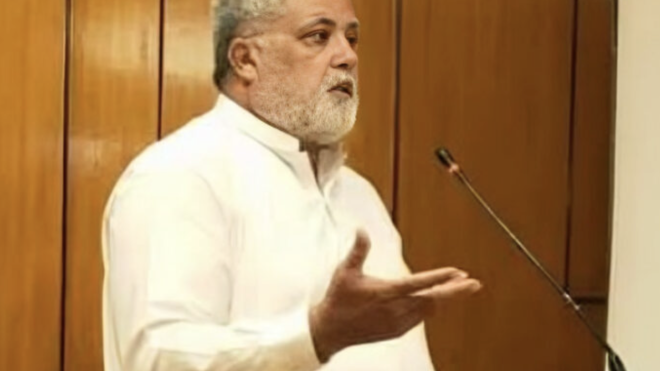By Captain Retired Umar Farooq
Published on Diplomatic Insider on July 25, 2025
https://diplomaticinside.com/2025/07/25/pakistans-journey-in-combating-terrorism-and-empowering-youth/
 For over two decades, Pakistan has faced the harsh realities of terrorism, enduring waves of extremist violence initially fueled by Taliban insurgency and, more recently, by separatist movements such as the Balochistan Liberation Army (BLA). These groups targeted state institutions, fomented unrest, and exploited vulnerable youth in regions such as Khyber Pakhtunkhwa (KPK) and Balochistan, encouraging them to carry out attacks and suicide missions.
For over two decades, Pakistan has faced the harsh realities of terrorism, enduring waves of extremist violence initially fueled by Taliban insurgency and, more recently, by separatist movements such as the Balochistan Liberation Army (BLA). These groups targeted state institutions, fomented unrest, and exploited vulnerable youth in regions such as Khyber Pakhtunkhwa (KPK) and Balochistan, encouraging them to carry out attacks and suicide missions.
Despite these formidable challenges, Pakistan has fought the war against terrorism on multiple fronts—strategically, diplomatically, tactically, and militarily. The state has made significant progress in dismantling terrorist networks and restoring stability. A critical factor in this success has been countering the ideological manipulation of youth by terrorist organizations.
To address this, the Government of Pakistan and the military have launched comprehensive initiatives to redirect the energy of the nation’s youth toward constructive engagement. Senior military leaders, including generals, have been engaging students across universities to broaden their understanding of the national security landscape and instill a sense of civic responsibility.
Educational reforms are central to this transformation. Public universities such as NUTECH are equipping students with technical skills and connecting them with international job opportunities. The distribution of free laptops to high-achieving students and the revitalization of sports and academic competitions across provinces have fostered a culture of achievement and positive competition.
Pakistan’s youth are now actively participating on the global stage—competing in academic contests, joining sports leagues in Europe and Africa, and representing the country in various international platforms. Religious seminaries are also undergoing reforms, emphasizing research and modern education to integrate traditional values with contemporary knowledge.
Efforts in tribal regions, including Waziristan, focus on grooming young individuals into responsible citizens, with the establishment of cadet colleges in remote areas providing access to quality education and career opportunities.
The Pakistan Armed Forces have taken unprecedented steps to include youth from all provinces, including Balochistan, Gilgit-Baltistan, and former tribal areas, into mainstream national development. Importantly, the doors have been opened for young women to serve as commissioned officers and fighter pilots. Notable figures like General Nigar Johar—the first female general and doctor in the Pakistan Army—serve as role models, inspiring both girls and boys across the nation.
The inclusion of youth from minority communities further demonstrates Pakistan’s commitment to diversity and national unity. A young Hindu woman became an Assistant Commissioner in Hasanabdal, and a Sikh youth was commissioned as a captain in the army—clear signs of inclusive progress.
Motivational figures like Qasim Ali Shah are also playing a vital role in guiding the youth towards purpose and resilience. Through a unified national effort, Pakistan is actively working to neutralize the influence of extremism and transform its younger generations into agents of peace, development, and innovation.
Pakistan’s internal security landscape has also been shaped by the influx of Afghan refugees over the past four decades. Following the Soviet invasion in 1979 and subsequent conflicts, over 3.7 million Afghan refugees settled in Pakistan, making it the second-largest refugee-hosting country in the world. While Pakistan extended humanitarian support, the absence of a robust migration framework led to unregulated settlements, particularly along the porous border regions. This created vulnerabilities that extremist groups exploited, especially in Khyber Pakhtunkhwa and Balochistan.
The lack of documentation for nearly 775,000 Afghan nationals further complicated law enforcement and border security efforts. Pakistan has since recognized the need for structured migration policies, introducing biometric verification systems, improved border protocols, and revised registration procedures. These reforms aim to balance humanitarian obligations with national security imperatives, offering valuable lessons in managing large-scale migration while safeguarding internal stability.
On the youth development front, Pakistan’s initiatives have yielded measurable results. Under the Prime Minister’s Youth Laptop Scheme, over 600,000 laptops have been distributed to students on merit, including 265,000 to female students. In 2025 alone, 100,000 laptops were awarded, empowering students with digital tools for academic and professional growth. Since 2010, Pakistan has established multiple cadet colleges across the tribal belt, including in Mohmand, Wana, Spinkai, and Razmak. These institutions now serve thousands of students, with Cadet College Mamad Gat alone hosting 500 cadets, including seats reserved for tribal youth and children of martyrs. In the first half of 2025, over 172,000 Pakistanis sought employment overseas, with many young professionals heading to Saudi Arabia, Oman, and the UAE. In 2023, over 800,000 youth went abroad, including 11,000 engineers, 4,000 doctors, and 37,500 managers, reflecting Pakistan’s growing global footprint.
These statistics underscore Pakistan’s commitment to transforming its youth into global ambassadors of peace, innovation, and resilience. By learning from past migration missteps and investing in inclusive development, Pakistan is charting a path toward a more secure and empowered future.
With continued investment in education, opportunity, and national cohesion, Pakistan is poised to overcome the menace of terrorism and emerge stronger, more inclusive, and more resilient than ever.
 About the Author: Captain Umar Farooq, born in 1971 in Pakistan, is a retired officer of the Pakistan Army and a former member of the US Antiterrorism Department in Islamabad. He is also a published journalist, poet, and motivational speaker. His writings and speeches primarily focus on inspiring and empowering the youth of Pakistan.
About the Author: Captain Umar Farooq, born in 1971 in Pakistan, is a retired officer of the Pakistan Army and a former member of the US Antiterrorism Department in Islamabad. He is also a published journalist, poet, and motivational speaker. His writings and speeches primarily focus on inspiring and empowering the youth of Pakistan.

